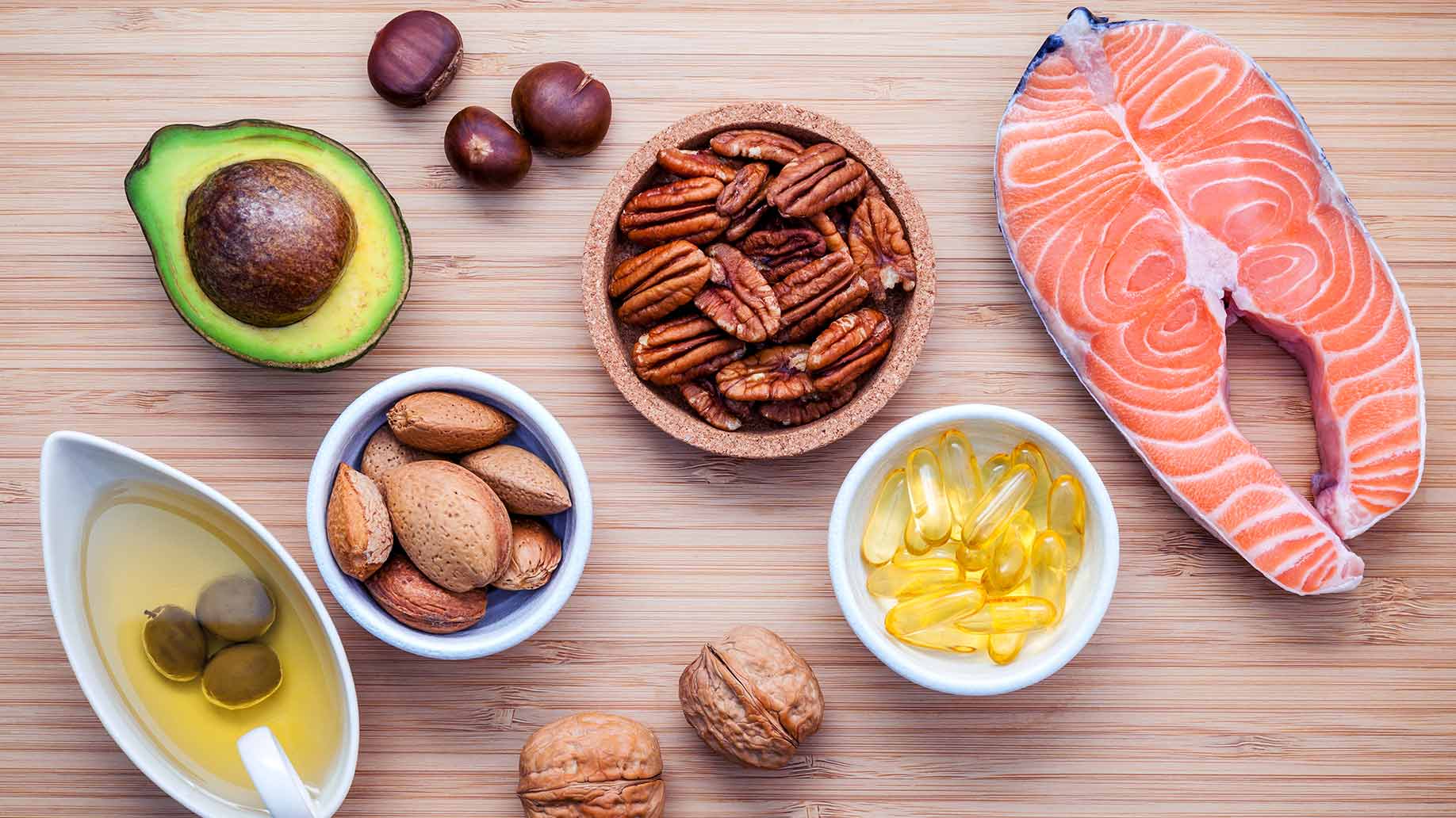Everyone experiences forgetfulness at times and episodes of absent-mindedness tend to become more common as we get older.
Occasional memory lapses can be frustrating, but in most cases, they are part of the normal aging process and not an early warning sign of dementia. Younger people can also experience difficulties with retaining or recalling information due to a variety of biological and psychological factors.
Common Causes of Memory Loss
- Age: The hippocampus, a brain region involved in the retrieval of memories, often deteriorates with age and cognitive processing begins to slow down.
- Menopause: Estrogen influences a number of brain functions including verbal memory. As a woman’s estrogen levels begin to drop during menopause, she may find it more difficult to recall names and words.
- Pregnancy: Hormone fluctuations during pregnancy can affect memory, resulting in ‘baby brain’.
- Depression: People with depression experience invasive thoughts that can interfere with their ability to take in new information, categorize it and recall it later.
- Thyroid Disease: Both hypothyroidism and hyperthyroidism can cause cognitive problems such as poor concentration, memory lapses and brain fog.
- Medication: Some prescription medications can cause memory loss as a side effect. These include sleeping pills, muscle relaxants, antihistamines and drugs for depression and anxiety.
Other common causes including stress, lack of sleep and nutritional deficiencies are discussed in detail below.
Normal Memory Lapses
The following types of ‘senior moments’ are normal and usually not warning signs of serious cognitive impairment or dementia:
- Forgetting names of acquaintances or people to whom you’ve recently been introduced
- Not being able to retrieve a word or fact but feeling that it is ‘on the tip of your tongue’
- Walking into a room and forgetting why you went there
- Opening the refrigerator when you intended to get something from a cupboard
- Becoming distracted and forgetting what someone just told you or what you just read
- Forgetting where you left a frequently used object
The supplements and techniques described below could help improve your memory and overall cognitive function. They may also help to prevent age-related memory problems from developing.
7 Science-Backed Remedies for Memory Loss
1. Asian Ginseng

Asian ginseng (Panax ginseng) has been used for centuries in Chinese medicine to combat the effects of aging. Ginseng contains active components known as ginsenosides.
Ginsenosides increase internal antioxidant enzymes, helping to decrease brain cell damage due to oxidative stress. They also protect neurons from damage caused by excessive stimulation by neurotransmitters such as glutamate.
Research has shown that ginsenosides such as panaxydol and panaxynol can protect brain cells and prevent neurodegeneration. Rodent studies have also shown that ginsenosides reduce the accumulation of the Alzheimer’s amyloid beta peptide in the brain.
A crossover study published in Nutritional Neuroscience investigated whether ginseng had any consistent effect on aspects of cognitive performance. Researcher recruited 20 healthy young volunteers who were given four different supplements in random order: 200, 400 or 600 mg of ginseng capsules or a placebo capsule.
The participants took a battery of computerized cognitive tests under each condition between 1-6 hours after taking the capsule. There was a significant improvement in scores for quality of memory and episodic memory at all time points following 400 mg of Ginseng.
A study published in the Journal of Ginseng Research investigated the effects of 8-weeks administration of ginseng on cognitive performance. A total of 16 healthy young participants were treated with ginseng extract capsules and placebo capsules for 8-weeks in random order with a 4-week wash-out between treatments.
On days 1, 29, and 57, the participants were given a battery of computerized cognitive tests and completed mood questionnaires. Ginseng treatment significantly improved performance on working memory tasks. It also improved subjective ratings of quality of life and mood.
A clinical study published in Alzheimer Disease & Associated Disorders investigated the efficacy of ginseng in the cognitive performance of Alzheimer’s disease patients. Researchers randomly assigned 58 Alzheimer’s patients to receive 4.5 grams per day of ginseng powder. Another 39 patients served as a control group. Both groups also continued conventional therapy.
Patients’ cognitive performances were monitored using the standardized Mini-Mental State Examination (MMSE) and Alzheimer disease assessment scale (ADAS) during the 12-week ginseng treatment and at 12 weeks following discontinuation of ginseng.
After ginseng supplementation, both the cognitive subscale of ADAS and the MMSE score began to show improvements which continued up to 12 weeks. At 12 weeks after ginseng discontinuation, the improved cognition scores declined to the levels of the control group. Researchers concluded that ginseng treatment was clinically effective for improving cognitive function in Alzheimer disease patients.
Method: When choosing an Asian ginseng (also known as Korean ginseng) supplement, keep in mind that the weight of ginseng root extract in milligrams doesn’t tell you how much of the active ingredients it contains. Compare labels and look for a supplement containing at least 24mg of ginsenosides.
Recommended:
2. Ginkgo Biloba

Gingko biloba is currently among the most popular supplements for boosting memory and preventing dementia.
Gingko biloba, also known as the maidenhair tree, is one of the oldest species of tree in the world. Its leaves were used in ancient Chinese medicine to promote energy flow through the body.
Research has shown that compounds in Gingko including terpene trilactones and flavonoids cross the blood–brain barrier and enter the central nervous system. These substances improve oxygen-rich blood flow to the brain, promoting healthy growth of neural connections. They also help protect against neurodegenerative diseases.
A population-based study published in PLOS One investigated the effect of Ginkgo biloba on long-term cognitive decline within a cohort of 3,612 non-demented participants aged 65 and over. The researchers analyzed data collected over 20 years of follow-up during home visits by trained psychologists. Cognitive function was assessed with the standardized Mini-Mental State Examination (MMSE) and separate tests for visual memory and verbal fluency. Participants were asked about their physical health and all medications consumed.
Within the cohort, 589 subjects reported taking Ginkgo biloba extract and 149 reported taking piracetam, a memory enhancing ‘smart drug’. Data from these groups were compared with each other and with data from the 2,874 subjects who did not report use of either supplement.
The decline in MMSE scores was significantly lower in the group who used Ginkgo biloba. At the end of the 20-year follow-up, the gingko group scored about 5 points better on the 30-point MMSE, which the researchers considered an important and clinically relevant difference. Surprisingly, the piracetam group did not perform as well as the Gingko group and the ‘neither treatment’ group all along the follow-up period in the three tests studied.
A Chinese study tested the efficacy of Ginkgo biloba in improving episodic memory in patients with mild cognitive impairment (MCI). A total of 120 MCI patients aged 60-85 were randomized into 2 groups. The treatment group took 19.2 mg of Ginkgo biloba leaf tablets 3 times a day. The control group received their usual care. At the beginning and end of the study, the patients were assessed with a picture recognition test and a logical memory test.
After 6 months, the scores on both memory tests increased significantly in the Ginkgo biloba group. There was no statistically significant difference in test scores for the control group. The positive rate of picture recognition in the Ginkgo group was 55% compared to 33% in the control group and the efficacy rate of logical memory was 59% in the treatment group, compared to 38% in the control group.
A controlled trial published in Neurology assessed the efficacy of Ginkgo biloba extract on delaying the progression to cognitive impairment in the elderly. A total of 118 people over age 85 with normal memory function were randomized to receive either daily supplements containing 240 mg of Ginkgo biloba extract or a placebo.
Over 3 years, the participants underwent 6-month follow-up visits to assess health status changes and MMSE scores. Researchers also conducted a pill count to determine whether the subjects were taking their supplements as instructed. Annual visits included extensive cognitive testing and clinical examinations.
During the study twice as many people in the placebo group developed mild cognitive impairment compared to the gingko group, but because of the small sample size, the difference was not statistically significant. When the researchers re-analyzed the data using only subjects who took their pills as instructed in the proper dosage, the results showed that the ginkgo biloba takers had a 67% lower risk of developing mild cognitive impairment.
Method: Look for an extract of Gingko biloba supplement standardized to contain 24% flavone glycosides and 6% terpene lactones. Take 120 mg daily.
Recommended:
3. DHA

DHA (docosahexaenoic acid) is an omega-3 essential fatty acid that is an integral component of neurons and plays an important role in brain function.
Dietary DHA is deposited in the brain’s hippocampus where it enhances synaptic transmission. Memory cells communicate and transmit messages more easily when there are higher levels of DHA in this region of the brain.
Rodent studies have shown that DHA accumulates in areas of the brain involved in memory and attention and that low levels of DHA can reduce memory-related learning ability. DHA deficiency is common among vegetarians and people who rarely consume fish or seafood.
A study published in the Journal of Nutrition tested potential associations between omega-3 fatty acids and cognitive functioning in middle-aged adults. Researchers recruited 280 volunteers aged 35-54 who were not taking fish oil supplements. All of the participants had their blood tested for levels of ALA, EPA and DHA. They then took a 75-minute battery of neuropsychological tests. Higher DHA levels were related to better performance on tests of nonverbal reasoning, vocabulary, mental flexibility, working memory. Neither EPA nor ALA was significantly related to any dimensions of cognitive performance.
A double-blind trial published in the American Journal of Clinical Nutrition investigated whether DHA supplements improve cognitive performance in healthy young adults. A total of 176 participants aged 18-45 who had a low intake of dietary DHA were randomized to receive either 1.15 grams of DHA per day or a placebo for 6 months.
Before and after supplementation, participants took a battery of computerized tests including word recall, picture recognition and letter-number sequencing. Compared with the placebo, DHA supplementation significantly improved reaction times on tasks associated with episodic and working memory.
A randomized controlled trial published in Psychopharmacology investigated the effects of fish oil supplementation on mild cognitive impairment (MCI). A total of 36 elderly subjects with MCI were assigned to receive either concentrated DHA fish oil supplements or placebo capsules for 12 months. Cognitive tests before and after supplementation assessed changes in memory. The fish oil group showed significant improvement in short-term and working memory, immediate verbal memory and delayed recall capability.
A meta-analysis published in PLOS One examined the effect of DHA intake on specific memory domains in healthy adults. Researchers combined data from 15 trials in which subjects with mild memory complaints or no cognitive complaints were treated with fish oil or DHA supplements. The trials averaged 4-6 months and most enrolled at least 100 subjects. The data showed that supplementation with at least 1 gram per day of fish oil significantly improved episodic memory (memory of personally experienced events) regardless of cognitive status.
Method: Aim to eat at least two servings per week of oily fish such as salmon, trout, mackerel, herring, fresh tuna or swordfish.
There are several types of DHA supplements available including fish oil, cod liver oil and krill oil. Vegetarians can obtain DHA from algae oil supplements.
Recommended:
4. Curcumin

Curcumin is a polyphenolic compound found in the curry spice turmeric. It may help boost memory and reduce cognitive decline through three different mechanisms.
In addition to its antioxidant and anti-inflammatory effects, it increases the expression of enzymes which degrade beta-amyloid proteins. Beta-amyloid proteins build up at brain synapses and interfere with communication between cells.
Research has shown that curcumin’s potent anti-inflammatory and antioxidant properties can reduce oxidative stress and inflammation in the brain, both of which have been linked to memory impairment. Rodent studies have demonstrated that curcumin can also help to protect against Alzheimer’s disease by reducing the accumulation of beta-amyloid plaques in the brain.
A cohort study published in the American Journal of Epidemiology examined the association between usual curry consumption and cognitive performance in elderly Asians. Researchers interviewed 1,010 subjects aged 60–93 about their frequency of curry consumption and assessed their cognitive function using the Mini-Mental State Examination (MMSE).
The data revealed that participants who consumed curry occasionally, often or very often had significantly better MMSE scores than subjects who never or rarely consumed curry. The difference in scores between curry-eaters and non-curry eaters was equivalent to a 10-year age difference.
A study published in Psychopharmacology investigated the effects of curcumin on cognition and mood in an older population. Researchers recruited 60 healthy volunteers aged 60-85 and randomized them into two groups. The treatment group received 400 mg of curcumin capsules formulated for increased bioavailability. The control group received placebo capsules.
One hour and 3 hours after taking the capsules, the participants completed computerized cognitive tasks such as mental subtraction, word and picture recall and reaction time tests. They repeated the cognitive tasks after taking the supplements for 4 weeks. After 1 hour, curcumin significantly improved performance on working memory and sustained attention tasks compared with the placebo. After 4 weeks of treatment, working memory and vigilance were significantly better and mood was improved. Participants also reported reduced fatigue, less stress and improved calmness and contentedness.
An 18-month trial published in the American Journal of Geriatric Psychiatry studied the effect of curcumin on memory in healthy, non-demented older adults. A total of 40 subjects aged 51–84 were randomized to receive 90 mg of a bioavailable form of curcumin or placebo capsules twice daily.
At the start and end of the trial, the participants performed standardized cognitive assessment tasks. After 18 months the curcumin group showed significant improvements in verbal memory, visual memory and sustained attention and also had mild improvements in mood. The placebo group did not have significant improvements in any cognitive domain.
The researchers also performed PET scans on a subgroup of 30 subjects at the start and end of the study to determine the level of proteins linked to Alzheimer’s disease. After 18 months brain scans of the curcumin group showed significantly less accumulation of amyloid plaques and tau tangles in brain regions modulating mood and memory.
Method: If you cook curries with turmeric you can increase the bioavailability of curcumin by adding ground black pepper.
When choosing a curcumin supplement, look for ones containing at least 700 mg of active curcuminoids in a bioavailable formula.
Recommended:
- Turmeric, Curcumin – Organic Capsules
- Turmeric Powder
- Curcumin Turmeric – Organic, Non-GMO Capsules
- Turmeric Curcumin with Bioperine and Black Pepper Capsules
5. Vitamin B-12

Vitamin B-12 deficiency is a surprisingly common cause of memory loss symptoms. It is essential for the proper functioning of the brain and nervous system.
Vitamin B12 plays an important role in the maintenance of the myelin sheaths that cover and protect the nerves, ensuring effective nerve-impulse transmission. People tend to become less efficient at absorbing vitamin B-12 from food as they age, so vitamin B-12 insufficiency often occurs in older people.
Because there are no plant-derived foods that supply a sustainable amount of vitamin B-12, vegetarians and vegans of any age can suffer a deficiency unless they take supplements or eat fortified processed foods. Research has shown that even adolescents following a vegan diet can suffer from neurologic disorders and impaired cognitive performance.
A study published in Neurology investigated the interrelations of vitamin B-12 markers with cognitive performance. Researchers took blood samples from 121 people aged 65 and over enrolled in the Chicago Health and Aging Project and tested them for metabolites that can indicate a B12 deficiency. The participants took neuropsychological tests measuring their memory and other cognitive skills and, 4-5 years later, MRI scans were taken to measure their total brain volume.
The data showed that high concentrations of four markers for vitamin B-12 deficiency were associated with lower global cognitive function and smaller brain volume. High levels of B-12 deficiency markers were specifically linked to poorer episodic memory, semantic memory and perceptual speed.
A study published in the American Journal of Clinical Nutrition examined whether levels of vitamin B-12 within the normal range were linked to memory functions in patients with mild cognitive impairment (MCI). Researchers recruited 100 patients who had been diagnosed with MCI and measured their blood levels of vitamin B-12. Their cognitive performance was assessed with a word learning and word recall test. Participants also underwent MRI scans to reveal brain structures associated with memory.
MCI patients with vitamin B-12 concentrations in the low-normal range showed significantly poorer memory performance, learning ability and recognition scores in comparison with MCI patients with high-normal vitamin B12 concentrations. MRI scans showed that the low-normal B-12 group also had reduced structural integrity of the hippocampus.
A 2-year controlled trial published in the American Journal of Clinical Nutrition investigated whether folic acid and vitamin B-12 supplementation could reduce cognitive decline in the older population. A cohort of 900 adults aged 60-74 with depressive symptoms were randomized to receive supplement tablets containing oral 400 ug of folic acid and 100 ug of vitamin B-12 or placebo tablets.
At the start of the study, and at 12 and 24 months, researchers assessed participants’ cognitive function using a standardized screening test called the Telephone Interview for Cognitive Status–Modified (TICS-M). After 24 months, the supplementation group showed significantly greater improvements in overall cognitive functioning scores compared to the placebo group. They also showed significant improvements in immediate and delayed memory performance.
Method: Foods rich in vitamin B-12 include fish, meat, poultry, eggs and dairy products.
Vegans and people over aged 50 should take a daily 1,000 mcg of B-12 supplement.
Recommended:
6. Stress Management

In stressful situations, the adrenal glands produce the hormone cortisol as part of the ‘fight or flight’ response.
High levels of cortisol in the bloodstream associated with chronic stress have been linked to impaired memory and cognitive function. An excess of cortisol can impair the ability of the hippocampus to both encode memories and retrieve information.
Chronic stress can also trigger an immune response which causes inflammation in the brain, leading to short-term memory loss.
Research on rodents has shown that repeated, long-term exposure to cortisol can lead to the gradual loss of synapses in the prefrontal cortex, the region of the brain that stores short-term memories.
A Danish study examined whether work-related stress can cause impaired concentration and memory. Researchers matched 59 outpatients on sick leave due to work-related stress with 59 healthy controls of the same age, sex and educational level. The participants were all assessed with a battery of neuropsychological tests.
Compared to controls, the stressed patients showed reduced performance across all the measured cognitive domains. Significant differences between patients and controls were seen on tests of complex working memory, prospective memory and processing speed.
A longitudinal study published in Psychology and Aging examined the association between stress, memory problems and cognitive decline. A cohort of 112 men and women aged 34-83 took a battery of 7 cognitive tests which measured working memory, reasoning and speed of processing. They repeated the same tests 10 years later to give an indication of age-related cognitive degeneration.
Over 12 weeks following the second cognitive assessment, the participants filled in surveys about daily stressors such as spousal disagreements and everyday memory failures such as difficulty dividing attention between two activities. The participants also provided saliva samples to assess levels of the stress hormone cortisol. Participants with greater cognitive decline reported more memory problems, but they had greater increases in memory problems during times of stress as measured by both their weekly self-reports and their cortisol profiles.
Obesity can lead to elevated cortisol responses to stress. A study published in the journal Stress explored stress-induced cognitive impairment in centrally obese individuals. Researchers divided 66 middle-aged adults into groups according to their waist-to-hip ratio.
The participants underwent a stress protocol that required them to prepare and deliver a speech and verbally respond to a challenging arithmetic problem while being judged by an audience. Their post-stress cognitive performance was evaluated using a battery of computer-based neuropsychological tests. Exposure to stress and increasing waist-to-hip ratio were specifically associated with poorer performance on declarative memory tasks including spatial recognition memory and paired associates learning.
Method: To keep your cortisol levels under control, learn to relax with various stress management techniques and find a stress-relieving activity that you enjoy doing on a regular basis.
You can try mindfulness, meditation, yoga, Tai Chi or nature walks. Make it a point to work ‘me time’ into your daily schedule.
Recommended:
7. Sleep

Sleep is vital for memory and learning. During the rapid eye movement (REM) stage of sleep, newly acquired information is consolidated in memory.
Slow brain waves generated during deep sleep plays a key role in transporting memories from the short-term storage area in the brain’s hippocampus to long-term storage area in the prefrontal cortex.
Sleep disruption in the elderly is a contributing factor to age-related cognitive decline. As people age, grey matter in the prefrontal cortex gradually shrinks, causing a reduction in slow wave activity during non–rapid eye movement sleep.
In addition, many older people experience disrupted sleep due to chronic medical conditions such as arthritis, gastric reflux disorder or sleep apnea.
A prospective study published in Sleep examined whether sleep duration was associated with memory decline or development of memory impairment. A cohort of 13,888 participants aged 50 and over with no memory impairment at the start of the study were followed up for an average of 4 years.
All of the participants were interviewed about lifestyle factions and sleeping habits including night-time sleep duration and day-time napping. Their memory was assessed using a standardized word recall test. A subset of 6,020 participants also had their cognitive function assessed with the Mini-Mental State Examination (MMSE).
Over the follow-up period, 980 participants developed memory impairment. Compared to those who slept an average of 7 hours per day, participants with sleep duration of 5 hours or less had significant declines in MMSE scores. This association remained after adjusting for factors such as smoking, physical activity and health status.
A study published in PLOS One examined the impact of a daytime sleep opportunity on working memory. A total of 80 healthy students aged 17-23 were randomized to a nap group or a wake group. At 1 pm the participants spent an hour taking a variety of tests that measured vigilance, attention and working memory.
Then the nap group were allowed to sleep for 90 minutes while monitored by polysomnography. Meanwhile, the wake group spent time using electronic devices or doing homework. At 5:30pm, all the participants completed another session of cognitive tests.
The nap group had significantly higher accuracy on the working memory task and fewer lapses on the vigilance test. Unsurprisingly, they also reported less sleepiness than the wake group. Within the nap-group, working memory scores were positively correlated with duration of rapid eye movement sleep (REM) and total sleep time.
A crossover study published in Sleep investigated the effects of sleep duration on the ability to recall learned information during periods of stress. Researchers invited 15 healthy young men to a sleep laboratory and randomized them to a 4-hour or 8-hour sleep condition. At 10 pm, the participants completed a declarative memory task similar to the game ‘concentration’ in which they learned the locations of matching pairs of cards. The long sleep group went to bed at 11 pm and the short sleep group went to bed at 3 am.
Both groups were woken at 7 am and repeated the declarative memory task at 8:30 am. The participants then underwent a 30-minute stress protocol which involved intense and demanding tasks such as memorizing words while a loud beeping noise played through their headphones. They then repeated the ‘concentration’ task.
Following the stress protocol, participants who got only 4 hours of sleep were unable to maintain their pre-stress performance on the declarative memory task. In contrast, those who got a full night’s sleep recalled card locations just as well after being subjected to stress.
Method: Aim to get 7-9 hours of uninterrupted sleep every night. Follow these 7 Tips on How to Get Better Sleep and try these Remedies to Cure Insomnia.
Recommended:
- All Natural Sound Machine
- Soft Earplugs
- Sleep Mask – Silk
- Blackout Pleated Paper Shade
- Night Light Lamp – LED
- Blue Light Blocking Computer Glasses
- Wake-Up Light with Colored Sunrise Simulation
Final Word
If you find yourself experiencing minor memory lapses or ‘senior moments’, use these coping strategies to help prevent them from disrupting your daily routine.
- When someone gives you important information, repeat it back to them to help cement it in your mind.
- Write down appointments, meetings and social functions in a diary or on a calendar.
- Make shopping lists and ‘to do’ lists.
- Have specific places to keep frequently used items such as keys or glasses and always return them there.
- If you’re busy multitasking, set an alarm to help remind you to do something at a particular time.
- Put items you need to deal with later in plain sight. For example, if you need to return a library book, leave it on the coffee table, not in the book shelf.
- Don’t agree to do something when you’re busy and distracted. Discuss the request when you have time to focus on it.









